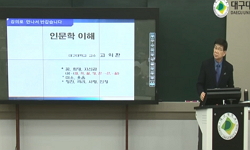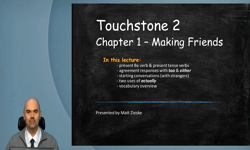본 연구의 목적은 정신지체아동의 의사소통 전략 사용 및 유형과 대화연쇄를 알아보고자 하였다. 연구 대상은 5, 6, 7세의 정신지체아동 20명과 4, 5세의 일반아동 13명이었다. 첫째, 의사소통 ...
http://chineseinput.net/에서 pinyin(병음)방식으로 중국어를 변환할 수 있습니다.
변환된 중국어를 복사하여 사용하시면 됩니다.
- 中文 을 입력하시려면 zhongwen을 입력하시고 space를누르시면됩니다.
- 北京 을 입력하시려면 beijing을 입력하시고 space를 누르시면 됩니다.


정신지체아동과 일반아동의 의사소통 전략과 대화연쇄 유형 비교 = The Comparison of Communication Strategies and Dialogue Sequence in Children with and without Mental Retardation
한글로보기https://www.riss.kr/link?id=A82424562
- 저자
- 발행기관
- 학술지명
- 권호사항
-
발행연도
2004
-
작성언어
-
- 주제어
-
KDC
370
-
등재정보
KCI등재,SCOPUS,ESCI
-
자료형태
학술저널
- 발행기관 URL
-
수록면
83-101(19쪽)
-
KCI 피인용횟수
8
- 제공처
- 소장기관
-
0
상세조회 -
0
다운로드
부가정보
국문 초록 (Abstract)
본 연구의 목적은 정신지체아동의 의사소통 전략 사용 및 유형과 대화연쇄를 알아보고자 하였다. 연구 대상은 5, 6, 7세의 정신지체아동 20명과 4, 5세의 일반아동 13명이었다. 첫째, 의사소통 전략 사용 및 유형은 5세 정신지체아동 및 일반아동 14명을 비교하였으며, 연령별 의사소통 전략 유형의 변화를 고찰하기 위해 5, 6, 7세의 정신지체아동과 4, 5세의 일반아동을 대상으로 분석하였다. 그 결과 정신지체아동은 의사소통 전략 사용에서 일반아동보다 낮은 사용빈도를 보였지만, 일반아동과 유사한 변화 양상을 나타냈다. 이러한 결과는 정신지체아동이 의사소통 전략을 사용할 수 있지만, 전략 사용의 적절성에 문제가 있음을 시사한다. 둘째, 대화연쇄를 분석한 결과, 정신지체아동이 일반아동보다 적게 사용했지만, 대화연쇄를 나타냈으며, 대화연쇄는 연령이 증가됨에 따라 교사주도 대화연쇄보다 아동주도 대화연쇄가 많았다. 이러한 결과는 정신지체아동의 의사소통 기술 향상을 위해서는 의사소통 전략을 활용할 수 있는 환경의 조성이 필요함을 시사한다.
다국어 초록 (Multilingual Abstract)
This study investigated the use of communication strategies and dialogue sequence of children with and without mental retardation. The participants were 20 children with mental retardation(aged 5 to 7) and 13 normal children(aged 4 and 5). First, in r...
This study investigated the use of communication strategies and dialogue sequence of children with and without mental retardation. The participants were 20 children with mental retardation(aged 5 to 7) and 13 normal children(aged 4 and 5). First, in relevance to communication strategies, the children with mental retardation used communication strategies less than normal children did. However, they seemed to use diverse patterns of communication strategies in the similar way. These results indicated that although the children with mental retardation could actually use communication strategies, they couldn’t use them appropriately. Second, in the analysis of the dialogue sequence, the children with mental retardation showed the dialogue sequence. As to the use of communication strategies, the critical problem of the children with mental retardation was not the frequency but the appropriateness. In conclusion, the findings indicate that although the children with mental retardation could produce communication strategies and the dialogue sequence, they failed to use appropriate communication strategies. Thus, in order to improve their skills of communication, we should provide opportunities to use communication strategies.
참고문헌 (Reference)
1 김영욱, "일반아동과 정신지체아동의 맥락정보 활용과 의사소통 전략 사용비교" 한국특수교육문제연구소 4 (4): 113-129, 2003
2 진제희, "상호 작용 상황에서 나타난 한국어 학습자들의 의사소통 전략 양상" 17 : 339-359, 2000
3 Abbeduto, L, "Understanding referential expressions in context Use of common ground by children and adolescents with mental retardation" 41 (41): 1348-1362, 1998
4 Canale,M, "Theoretical bases of communicative approaches to second language teaching and testing" 1 (1): 1-47, 1980
5 Godshall, "The role of social cognition in comprehension monitoring" 287-298, 1988
6 Jeanes, R. C, "The pragmatic skills of profoundly deaf education" 5 (5): 237-247, 2000
7 Yule, "The other side of the page Integrating the study of communication strategies and negotiated input in SLA A commemorative volume for Claus Faerch" 1991
8 Yule, "The other side of the page Integrating the study of communication strategies and negotiated input in SLA A commemorative volume for Claus Faerch" 1991
9 & Kasper, "Strategies in interlanguage communication" 1983
10 Paribakht,T, "Strategic competence and language proficiency" 6 : 132-146, 1985
1 김영욱, "일반아동과 정신지체아동의 맥락정보 활용과 의사소통 전략 사용비교" 한국특수교육문제연구소 4 (4): 113-129, 2003
2 진제희, "상호 작용 상황에서 나타난 한국어 학습자들의 의사소통 전략 양상" 17 : 339-359, 2000
3 Abbeduto, L, "Understanding referential expressions in context Use of common ground by children and adolescents with mental retardation" 41 (41): 1348-1362, 1998
4 Canale,M, "Theoretical bases of communicative approaches to second language teaching and testing" 1 (1): 1-47, 1980
5 Godshall, "The role of social cognition in comprehension monitoring" 287-298, 1988
6 Jeanes, R. C, "The pragmatic skills of profoundly deaf education" 5 (5): 237-247, 2000
7 Yule, "The other side of the page Integrating the study of communication strategies and negotiated input in SLA A commemorative volume for Claus Faerch" 1991
8 Yule, "The other side of the page Integrating the study of communication strategies and negotiated input in SLA A commemorative volume for Claus Faerch" 1991
9 & Kasper, "Strategies in interlanguage communication" 1983
10 Paribakht,T, "Strategic competence and language proficiency" 6 : 132-146, 1985
11 Kasper, "Some factors in the selection and implementation of communication strategies Strategies in interlanguage communication" In C 1983
12 Abbeduto, L, "Signaling of noncomprehension by children and adolescents with mental retardation: Effects of problem type and speaker identity" 40 (40): 20-32, 1997
13 Pratt, "Pragmatic awareness in children Metalinguistic awareness in children" Springer-Verlag 1984
14 Pratt, "Metalinguistic awareness in children" Springer-Verlag 1984
15 Rondal, J. A, "Language in mental retardation" Whurr Publishers 1997
16 Rosenberg, "Language and communication in mental retardation" Lawrence Erlbaum Associates 1993
17 한국 교육 개발원, "KEDI-WISC" 도서출판 특수교육 1991
18 박혜원, "K-WPPSI" 도서출판 특수교육 1996
19 Oetting,J.B, "Influence of the social context on pragmatic skills of adults with mental retardation" 95 : 435-443, 1991
20 Davies, "Identifying the referents of spoken messages Use of context and clarification requests by children with and without mental retardation American Journal on Mental Retardation" 551-562, 1991
21 Bachman,L.F, "Fundamental considerations in language testing" Oxford University 1990
22 Canale, "From communicative competence to communicative language pedagogy" 1983
23 Tarone, "Conscious communication strategies in interlanguage" 1977
24 Tarone,E, "Communication strategies:Foreigner talk and repair in interlanguage" 30 : 417-431, 1980
25 D?rnyei, Z, "Communication strategies in a second language: Definition and taxonomies" 47 (47): 173-210, 1997
26 Willems,G, "Communication strategies and their significance in foreign language teaching" 15 : 351-364, 1987
27 Clark, "Common ground and the understanding of demonstrative reference Journal of Verbal Learning and Verbal Behavior" 245-258, 1983
28 Ackerman, "Children’s use of the common ground in interpreting ambiguous referential utterances" 234-245, 1990
29 Ackerman,B.P, "Children’s understanding of the speaker’s meaning referential communication" 55 : 56-86, 1993
30 Poulisse, "A theoretical account of lexical communication strategies" 1993
31 Celce-Murcia,, "A pedagogically motivated model with content specifications Issues in Applied Linguistics" 6 : 5-35, 1995
동일학술지(권/호) 다른 논문
-
유창성장애 아동과 정상 아동의 비유창성과 말 속도에 관한 비교 연구
- 한국언어청각임상학회
- 전희정(Hee Cheong Chon)
- 2004
- KCI등재,SCOPUS,ESCI
-
- 한국언어청각임상학회
- 손은희(Eun Hee Son)
- 2004
- KCI등재,SCOPUS,ESCI
-
이야기 도식화 전략 교수가 초등 고학년 읽기장애 학생의 읽기 및 듣기 이해력에 미치는 효과
- 한국언어청각임상학회
- 황리리(Lee Lee Hwang)
- 2004
- KCI등재,SCOPUS,ESCI
-
학령전기 경직형 하지마비 아동이 산출한 모음의 음향음성학적 특징
- 한국언어청각임상학회
- 박지은(Ji Eun Park)
- 2004
- KCI등재,SCOPUS,ESCI
분석정보
인용정보 인용지수 설명보기
학술지 이력
| 연월일 | 이력구분 | 이력상세 | 등재구분 |
|---|---|---|---|
| 2018 | 평가예정 | 계속평가 신청대상(등재유지) | |
| 2015-01-01 | 평가 | 등재학술지 유지(등재유지) |  |
| 2013-03-29 | 학술지명변경 | 한글명 : Communication Sciences and Disorders</br>외국어명 : Communication Sciences and Disorders |  |
| 2012-12-18 | 학술지명변경 | 한글명 : 언어청각장애연구</br>외국어명 : Communication Sciences and Disorders |  |
| 2011-01-01 | 평가 | 등재학술지 유지(등재유지) |  |
| 2009-01-01 | 평가 | 등재학술지 유지(등재유지) |  |
| 2007-06-25 | 학술지명변경 | 한글명 : 언어청각장애연구</br>외국어명 : Korean Journal of Communication Disorders |  |
| 2007-01-01 | 평가 | 등재학술지 유지(등재유지) |  |
| 2006-09-13 | 학술지명변경 | 한글명 : 언어청각장애연구</br>외국어명 : Korean Journal of Communication Disorders |  |
| 2005-10-14 | 학술지명변경 | 한글명 : 언어청각장애연구</br>외국어명 : Korean Journal of Communication Disorders |  |
| 2004-01-01 | 평가 | 등재학술지 선정(등재후보2차) |  |
| 2003-01-01 | 평가 | 등재후보 1차 PASS(등재후보1차) |  |
| 2001-07-01 | 평가 | 등재후보학술지 선정(신규평가) |  |
학술지 인용정보
| 기준연도 | WOS-KCI 통합IF(2년) | KCIF(2년) | KCIF(3년) |
|---|---|---|---|
| 2016 | 1.13 | 1.13 | 1.17 |
| KCIF(4년) | KCIF(5년) | 중심성지수(3년) | 즉시성지수 |
| 1.21 | 1.18 | 1.626 | 0.33 |




 스콜라
스콜라







